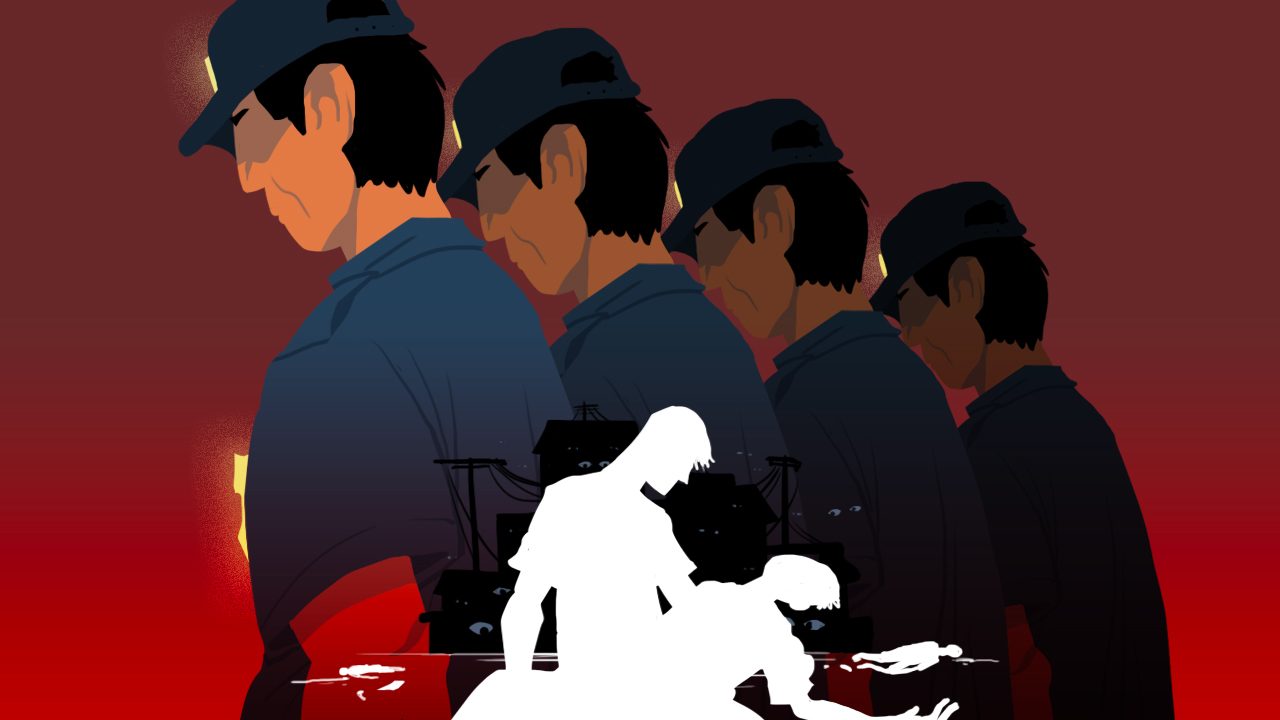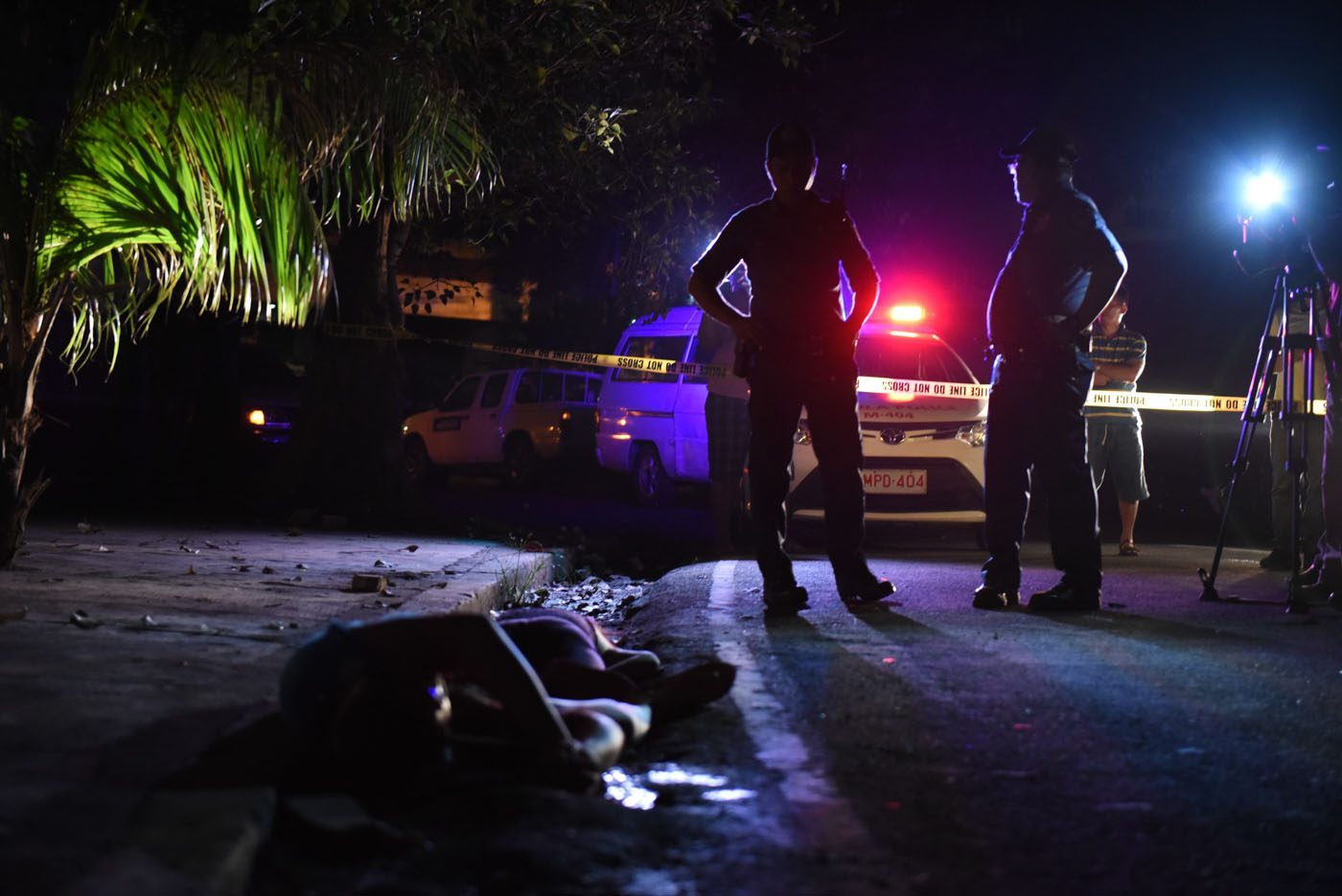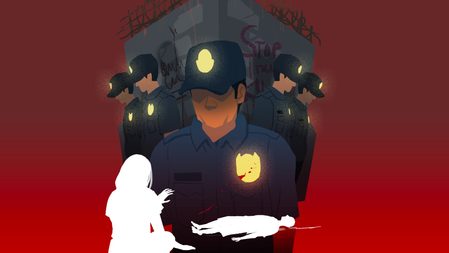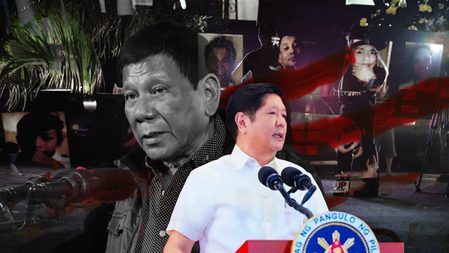SUMMARY
This is AI generated summarization, which may have errors. For context, always refer to the full article.

Editor’s Note: There is no denying that families left behind by victims of Rodrigo Duterte’s violent war on drugs want justice. In June 2021, then-justice secretary and now Solicitor General Menardo Guevarra said it would be difficult to file cases unless families and witnesses come forward. But in the context of the climate of impunity in the Philippines, pursuing legal cases at the local level means exposing themselves to harassment – or worse, death – especially in cases of anti-illegal drug operations where killers of their loved ones are part of their own communities. In this series, Rappler revisits some families who have chosen not to rely on domestic mechanisms and instead pin their hope on the International Criminal Court.
Second of 3 parts
PART 1 | Drug war widow rejects police probe: My husband’s killer is one of their own
MANILA, Philippines – It is August 2020, about five months into the nationwide lockdown that forced Filipinos into their homes to contain the deadly coronavirus. People gathering in the streets to drink and singing on the occasional karaoke after work were replaced by ambulances and their bright lights, taking patients from their houses to hospitals, many never to return home again.
In the poorest communities, ambulance sirens sang in chorus with gunshots fired by either policemen or men wearing dark jackets and bonnets, with then-president Rodrigo Duterte wielding the baton in the form of kill orders as part of his violent war on drugs.
The shots usually came in succession, a tell-tale sign of another deadly operation. But the many years since Duterte began the slaughter of his own countrymen made it easy for people to immediately identify a drug-related killing with just a lone piercing sound.
It was one gunshot that rattled two teenagers past midnight of August 2020 in northern Metro Manila. They were outside their small house preparing for another day’s work when they heard it. Fearing what was about to come, the two hurried back home.
What they didn’t know was that the sound came from just a few blocks away, and that the one on the receiving end was their uncle Julio*. His lifeless body was found by a neighbor three hours after.
“Akala nila nakaupo lang iyong kapatid ko, iyon pala patay na, may tama ng bala sa ulo (They thought my brother was just sitting on the ground with his back against the wall. Turns out he was dead with a bullet in the head),” his eldest sister Lourdes* told Rappler.
Neighbors who lived near the scene of the crime recalled hearing a man, supposedly Julio, talking to another person. “Hindi po ako iyan (That’s not me),” Julio reportedly said at first. The declaration became a pleading, and then a cry for help. Eventually the neighbors heard a loud bang, similar to what Julio’s nephews heard. Then there was silence, interrupted only by intermittent rain.
With one shot to the head, Julio became one of the thousands killed under Duterte’s violent war on drugs. Government data shows that by May 2022, at least 6,252 were killed in police operations alone, while human rights groups estimate the number to be between 27,000 to 30,000 to include victims of vigilante-style killings.
Violence as everyday reality
Julio was a man who mostly kept to himself. Lourdes described him as quiet, but would make his presence felt through other ways. He sold rags for a living, and the meager income he earned he’d share with his loved ones.
“Siya ang tumutulong sa amin kung wala akong pera pambili ng gatas o bigas para sa mga anak ko,” Lourdes said. “Nagbibigay siya na walang kapalit, para na siyang pangawalang tatay sa mga pamangkin niya.”
(He helped me buy milk or rice for my children when I didn’t have any money. He gave without expecting anything in return. He was like the second father to his nieces and nephews.)
Lourdes didn’t know if Julio was involved in illegal drugs, nor any other illegal activity. What she was sure of is that her brother didn’t deserve his fate, to have spent the final moments of his life in a dark alley calling out for help, with nothing coming.
The violence brought about by Duterte’s war on drugs has been the norm for Julio’s community since 2016. Many of his neighbors were already killed, either by police or by unidentified gunmen. By that time in August 2020, the death toll already reached 5,856 in police operations nationwide.
“Itong mga patayan na ang realidad namin, na halos gabi-gabi may mga putukan sa paligid, pero hindi ko naman naisip na magiging biktima ang kapatid ko (Killings were already our reality that every night you’d hear gunshots, but I never imagined my brother would fall victim to the drug war),” Lourdes said.
Police arrived at the scene of the crime following the discovery of Julio’s body. But Lourdes said they did not provide any report afterwards. They were just told that her brother died of a gunshot wound, a detail the family already knew.
No witnesses came forward to the police, not even those who heard Julio during his final moments. It wasn’t that they refused to help, it’s just that working with police was too risky.
Lourdes heard there was a neighbor who saw a man in civilian clothes wearing a bonnet roaming the narrow alleys in their community. The young child did not dare follow the stranger, and just decided to go home. She knew all too well what was about to happen.
“May mga nakakita naman, may mga nakasilip, pero ayaw nila magtestigo dahil sa takot din,” Lourdes said. “Hindi na lang kami nagpilit kasi baka madamay pa sila.”
(There were people who saw, who got a peak at what happened, but did not want to testify because they were scared. We didn’t force them because we didn’t want them to get tangled in this mess.)
The harassment experienced by families left behind have become the norm, not the exception, in Rodrigo Duterte’s Philippines. There are several reports where those left behind had to leave their own communities just to be outside the orbit of their loved ones’ killers, even if it meant depriving themselves of opportunities for livelihood.
Julio’s family was not spared from the climate of fear. He was not even buried yet when strange men started making their presence felt.
“Noong nakaburol pa lang ang kapatid ko, may mga nagtatanong-tanong raw sa mga kapitbahay namin tungkol sa amin tapos noong libing naman, may nakita kaming mga taong umaali-aligid sa harap namin na hindi naman namin kakilala,” Lourdes recalled.
(There were people asking our neighbors about us during my brother’s wake. During his burial, we saw men whom we did not know roaming around.)

‘How can we fight the police?’
Lourdes joined thousands of others wanting justice for their slain loved ones. They want the perpetrators to be held accountable, but the situation on the ground proved to be a difficult setting to do this.
Only a small number of convictions has been handed out over drug war killings, including the policemen involved in the killing of 17-year-old Kian delos Santos and the deaths of Carl Angelo Arnaiz and Reynaldo “Kulot” de Guzman.
Duterte himself often repeated the narrative that he will protect his men. And while President Ferdinand Marcos seems to detach himself from the violence of the past administration, killings continue.
Dahas, a project of the University of the Philippines Diliman’s Third World Studies Center, documented at least 263 reported drug-related killings from the start of the Marcos administration until April 22, 2023.
Almost a year after Julio was killed, a local barangay official asked Lourdes to drop by their office because police wanted to talk to her. They had one question: Does she want to file a case against her brother’s killer?
“Wala naman silang ipinakitang report na nag-imbestiga sila, wala silang sinabi na kung anong nakita nila sa kanilang imbestigasyon, basta pinipilit na lamang kami na magturo,” she told Rappler.
“Ang hirap naman magbintang kasi mamaya inosente pala iyon kaya sabi ko hindi ko itutuloy,” Lourdes added.
(They did not show a report that proved they did some investigation. They did not show any result. They just asked me if I wanted to file a case, forcing me to pinpoint a person. It’s difficult to just blame someone, who might turn out to be innocent, so I said I was not interested.)
She was made to sign a waiver stating that she would no longer file a case. The Philippine Human Rights Information Center, a group that documented the drug war, said that they recorded at least 13 other families who experienced the same. Only one family did not sign.
Lourdes was wary about following the narrative of the police. She does not believe that one of the people the police presented to her was actually her brother’s killer. She knows it was the police themselves who were responsible, an allegation that mirrors several other incidents uncovered by independent bodies and human rights groups.
In fact, the International Criminal Court pre-trial chamber said in September 2021 that there is indication that vigilante-style killings were carried out by people tapped by police, or that they took advantage of “a connection to the police.”
“Siguro kung hindi pulis ang alam naming pumatay sa kapatid ko, baka mas malakas pa loob namin na magsampa ng kaso,” she said. “Kaso sigurado kaming pulis, anong laban namin sa kanila kung sila ang may kontrol ng lahat?”
(Maybe if we knew that it was not the police who killed my brother, then maybe we’d have more courage to file a case. But we’re sure it was them. How can we fight against them when they control everything?)
‘Duterte started everything’
The involvement of police in systematic and widespread killings under Duterte’s drug war, compounded by the lack of progress in domestic mechanisms, has pushed families and other stakeholders to call for action outside of Philippine borders.
Throughout the years, they urged both the United Nations Human Rights Council (UN HRC) and the International Criminal Court (ICC) to help them. The UN rights body fell short of an actual investigation and instead offered technical assistance to the Philippines, a move highly criticized by many civil society actors.
The ICC did what the UN HRC failed to do. The ICC pre-trial chamber in January 2023 allowed Prosecutor Karim Khan to reopen his investigation into Duterte’s war on drugs. The chamber said that it is “not satisfied that the Philippines is undertaking relevant investigations that would warrant a deferral of the Court’s investigations on the basis of the complementarity principle.”
Lourdes said she is at peace knowing that the ICC is there to help them and thousands of other families left hanging by the Philippine government. She prefers the international tribunal over domestic mechanisms run by those complicit in the slaughter of Filipinos.
But the ICC is more interested in heads of state or higher officials involved in systematic human rights abuses, which means that the person who pulled the trigger may not see his day in court.
“Okay lang sa amin kasi si Duterte naman ang nagsimula ng lahat,” Lourdes said. “Kung hindi niya inutos, walang mangyayaring mga patayan, buhay pa sana ang kapatid ko.”
(It’s okay for us because it was Duterte who started everything. If he didn’t issue his orders, there would not be killings, my brother would’ve been still alive now.)
There is no concrete timeline on the ICC, nor an assurance that somebody will be convicted, at least in the near future. It doesn’t help that the Marcos administration has been anything but welcoming.
Aside from appealing the decision of the ICC pre-trial chamber to reopen the investigation, Marcos and his officials continue to echo the Duterte playbook of falsely pointing to issues of sovereignty and jurisdiction.
In March 2023, the Marcos administration even disassociated itself from parts of a Summit for Democracy Declaration that acknowledged the important role of the ICC.
For advocates, Marcos’ response to the ICC should signal his doublespeak on human rights. The European Union should take into consideration these developments in deciding whether or not to renew the trade perks it grants the Philippines.
The stakes may be high in the diplomatic arena, given how Marcos has been trying to project himself as different from his foul-mouthed predecessor. But at the end of the day, the President’s next move on the ICC should reflect what thousands of his own countrymen want, and not only what could benefit him.
“Sana makipag-usap na siya sa kanila para mabigyan na ng hustisya ang mga libo-libong namatay at ang kanilang mga pamilyang katulad namin,” Lourdes said.
“Matinding pangungulila na po ang pinagdadaanan namin kaya sana tulungan naman niya kami.”
(I hope that Marcos talks with the ICC already so that justice can be given to the thousands killed and to families like ours. We have already gone through tremendous grief so we’re hoping he could help us.) – Rappler.com
(To be concluded: Part 3 | Fear, harassment push drug war victims’ families to pin hope on ICC)
*Names have been changed for their protection
Add a comment
How does this make you feel?




![[The Slingshot] Lito Patay’s 4 hours and 38 minutes of infamy](https://www.rappler.com/tachyon/2024/07/Lito-Patay-4-hours-infamy-July-19-2024.jpg?resize=257%2C257&crop=233px%2C0px%2C720px%2C720px)

![[The Slingshot] A Duterte and Bato cop named Patay](https://www.rappler.com/tachyon/2024/06/tl-lito-patay.jpg?resize=257%2C257&crop=322px%2C0px%2C720px%2C720px)


![[Vantage Point] The PDEA leaks](https://www.rappler.com/tachyon/2024/05/vantage-point-pdea-probe.jpg?resize=257%2C257&crop=255px%2C0px%2C720px%2C720px)
![[Edgewise] How Duterte can elude ICC arrest](https://www.rappler.com/tachyon/2024/05/thought-leaders-How-Duterte-elude-icc-arrest.jpg?resize=257%2C257&crop=272px%2C0px%2C720px%2C720px)







There are no comments yet. Add your comment to start the conversation.